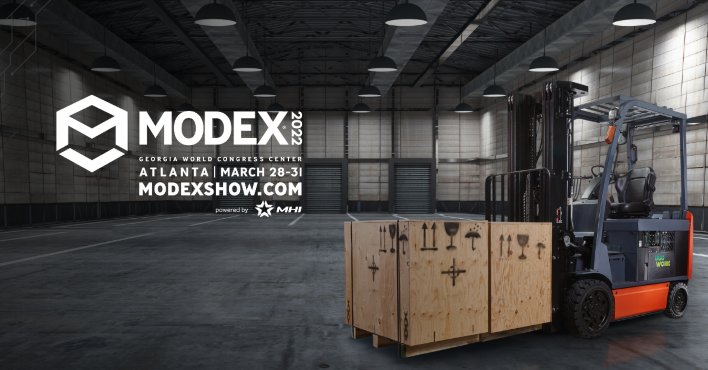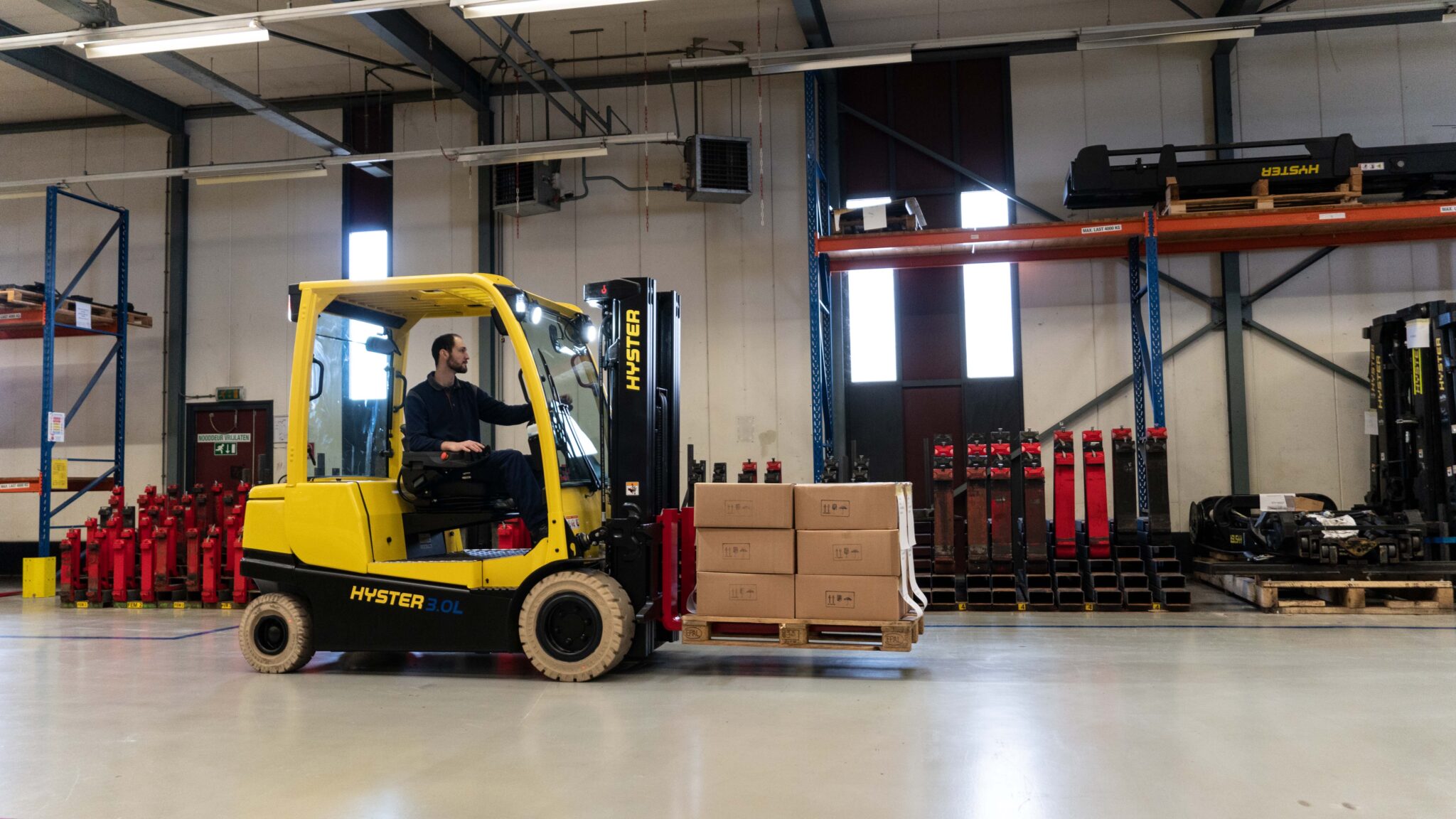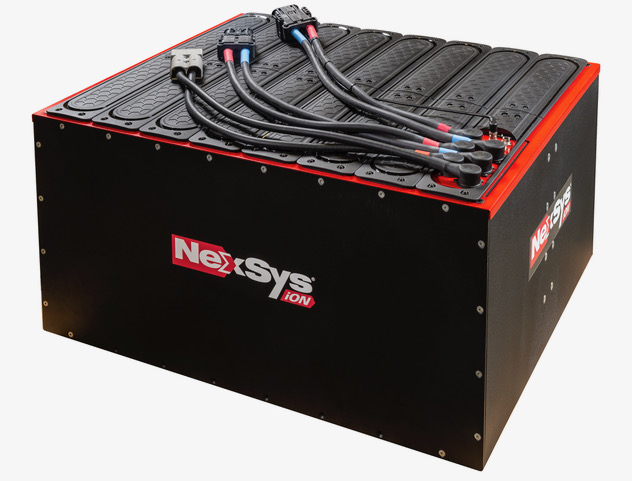Clark has relaunched the GEX and GTX series. The three and four-wheel electric forklifts in 48-volt technology with load capacities of 1.6 to 2 tonnes are now also available with a lithium-ion battery (Li-Ion). With the GEX and GTX series, Clark has for the first time brought counterbalance trucks with Li-Ion battery onto the market and further expanded the product portfolio in the area of Li-Ion technology.
Customers with intensive applications in particular benefit from the properties of the Li-Ion battery, such as longevity, quick and intermediate charging capability as well as freedom from maintenance. The manoeuvrable GEX and GTX electric forklifts with Li-Ion battery are in demand wherever it is important to deliver top performance reliably and cost-efficiency day after day.
Particularly in multi-shift operations in distribution or industry, where high availability is important, also in the food, beverage, chemical and pharmaceutical industries, where clean operation is essential, the Clark electric forklifts with Li-Ion battery are an indispensable component that ensures high handling performance with low operating costs.
“The Clark lithium-ion batteries are efficient energy bundles that impress with their high availability,” explains Rolf Eiten, President & CEO Clark Europe. “When developing our lithium-ion solution, it was important to us that the customer can not only benefit from all the advantages of this technology, but that in combination with an already proven Clark electric forklift series, he receives a logistics solution at the usual price-performance ratio, which also pays off for smaller and medium-sized operations.”
Two traction motors in the parallel front drive, each with 4.4kW power and 48V three-phase technology, ensure rapid acceleration of the vehicles and travel speeds of up to 16km/h. The AC motors used are designed to be wear-free and very robust. The Zapi Dual AC control system is equipped with CAN bus technology. Three driving modes are available for energy-efficient use of the truck.
Also individually programmable are the wear-free, regenerative braking with the motor brake and the automatic reduction of speed when cornering. Safe use on ramps is guaranteed by the standard ramp function, which prevents unintentional acceleration or rolling back of the truck and ensures that the operator always has the vehicle under control.
The GTX/GEX electric trucks have lift heights of up to 7075mm. The range is available with two wheelbases. The GTX16/GEX16 has a wheelbase of 1312mm. The GTX18/GEX18 and the GTX20s and GEX20s each have a wheelbase of 1420mm.
Li-Ion – high availability with low operating costs
The Clark Li-Ion solution consists of the Li-Ion battery including battery management system (BMS) and a high-frequency charger. The battery capacity is 460Ah for all models in the GTX/GEX series. This means that both the vehicles with a smaller wheelbase and those with a larger wheelbase have the same battery power.
The 48V (160A) charger only requires a power connection (CEE 16 A plug) and fully recharges the battery in as little as 2.5 hours. The charging status of the Li-Ion battery is shown on the truck display. During the charging process, the charger’s display shows the charging status. The BMS has a safety cut-out and thus ensures safe use of the battery.
The Li-Ion battery can be temporarily charged at any time and within a very short time – whenever breaks occur and without damaging the battery or shortening its life. Approximately 6-7% of the charge quantity can be achieved in 10 minutes. Decentralised charging points directly at the place of use ensure that fast and safe charging can take place at any time.
Li-Ion trucks can thus be used around the clock without the need to change batteries. This reduces the downtimes required for battery replacement. In addition, the operator does not have to keep any exchangeable batteries or infrastructure for battery replacement. He can use the expensive storage space thus gained for other purposes.
Another advantage of the Li-Ion battery is the fact that the battery scores with a constant voltage during the entire operation. Full power is always available ⎼ even when the battery is 85% discharged. In short, Clark Li-Ion batteries bundle a lot of energy in a small space. They have an extremely long service life and are optimal for intensive use. Operators can therefore not only increase their productivity by using Li-Ion batteries, but also save costs for maintenance, infrastructure and replacement batteries.
Safe and durable
Because Clark always focuses on safety, Clark Li-Ion batteries are based on lithium iron phosphate technology (LiFePO4). With LiFePO4 batteries, no oxygen is released during the chemical reaction within the cells. This means that there is no risk of spontaneous combustion or explosion of the battery. The use of the battery is therefore very safe. Trucks with LiFePO4 battery perform efficiently even at very low and high ambient temperatures.
With 2,500 guaranteed charging cycles, the service life of the Li-Ion battery is at least twice as long, and depending on the application even many times as long, as the service life of a lead-acid battery. And even after that, the battery can still be used for 10+ years for further uses. In addition, LiFePO4 batteries are more environmentally friendly than, for example, lithium nickel manganese cobalt oxides (NMC batteries), because these require problematic raw materials, such as cobalt. Moreover, NMC batteries can burn if they leave certain operating parameters.
“The investment in a Li-Ion truck is not only worthwhile for intensive applications, but also for all drivers who want to operate a maintenance-free, long-lasting and fast-charging battery with a high safety standard,” says Eiten.
In addition to high availability and high performance, the GTX/GEX series also has a lot to offer the operator: The extremely spacious operator workplace with a generous footwell and plenty of leg and headroom ensures that operators can feel comfortable at work. A choice of adjustable comfort seats with air or mechanical suspension contribute to the high level of operator comfort. The tilt of the steering column can be individually adjusted to suit the operator.
The pedals are car-compliant. The truck can be operated either by adjustable mini-levers integrated in the armrest or by ergonomically arranged hydraulic levers on the truck bonnet. A change of direction is made via the steering column, the armrest or via a double pedal. The multi-coloured, high-contrast display provides information on all important driving parameters. Storage options for documents and mobile phones round off the workplace. In addition, thanks to the nested mast profiles, the vehicle offers the operator a very good view through the mast to the forks and the load.
Manoeuvrable and effortless to operate
The power steering ensures that the operator needs only low steering forces and few steering wheel turns when manoeuvring. With a steering angle of 101°, the GEX16-20s four-wheel forklift turns on the spot almost like a three-wheel forklift. The inner front wheel runs in the opposite direction when the steering angle is high. The rear wheel is thus not pushed over the ground. Tyre wear is thus significantly lower than with other trucks. The GTX16-20s three-wheel truck has double tyres on the steering axle as standard. With a steering angle of 90°, the three-wheel trucks therefore turn on the spot.
Tailor-made for the application
The Clark three- and four-wheel electric forklifts are available with extensive additional equipment so that they can be individually adapted to a wide range of operating conditions. The optional equipment includes, among other things, different cabs, such as rain protection (steel roof), weather protection (steel roof and front windscreen), partial (steel roof, front and rear windscreen as well as PVC side panel) and full cab, mini-levers or mechanical levers, blue LED warning lights, orange safety belt, attachments as well as additional safety options.










